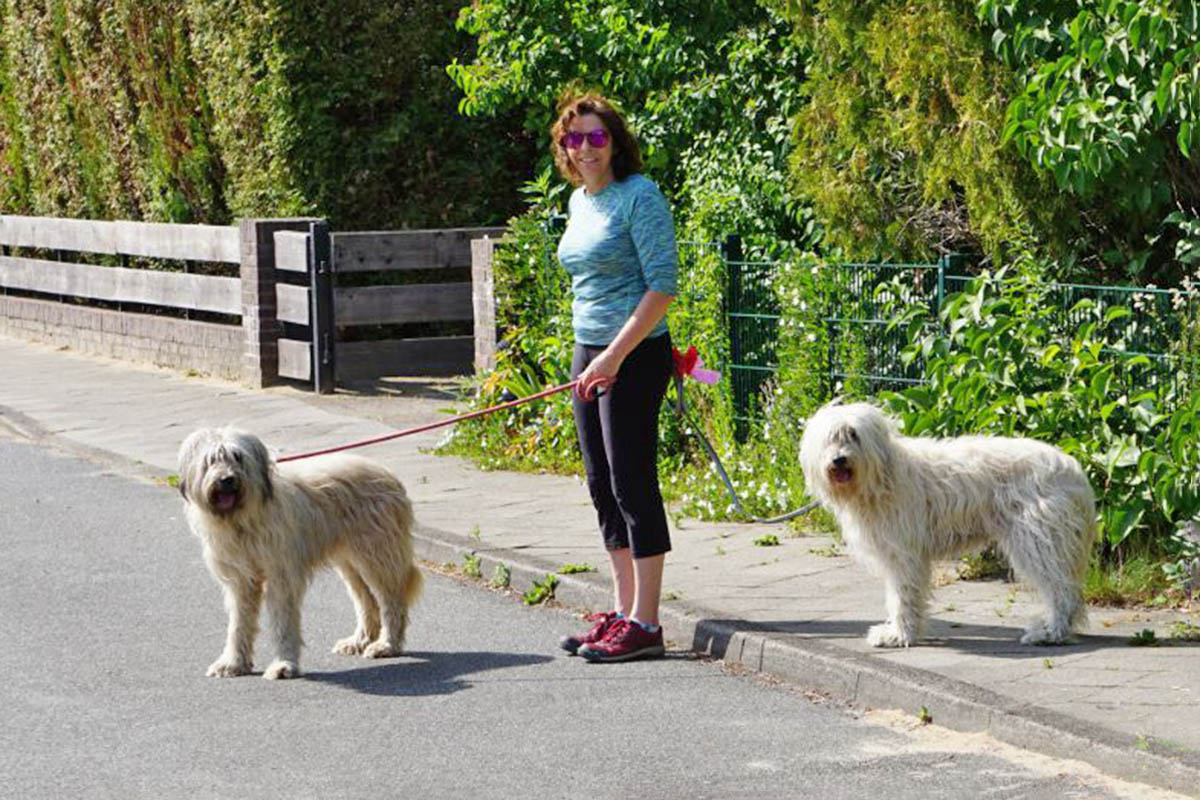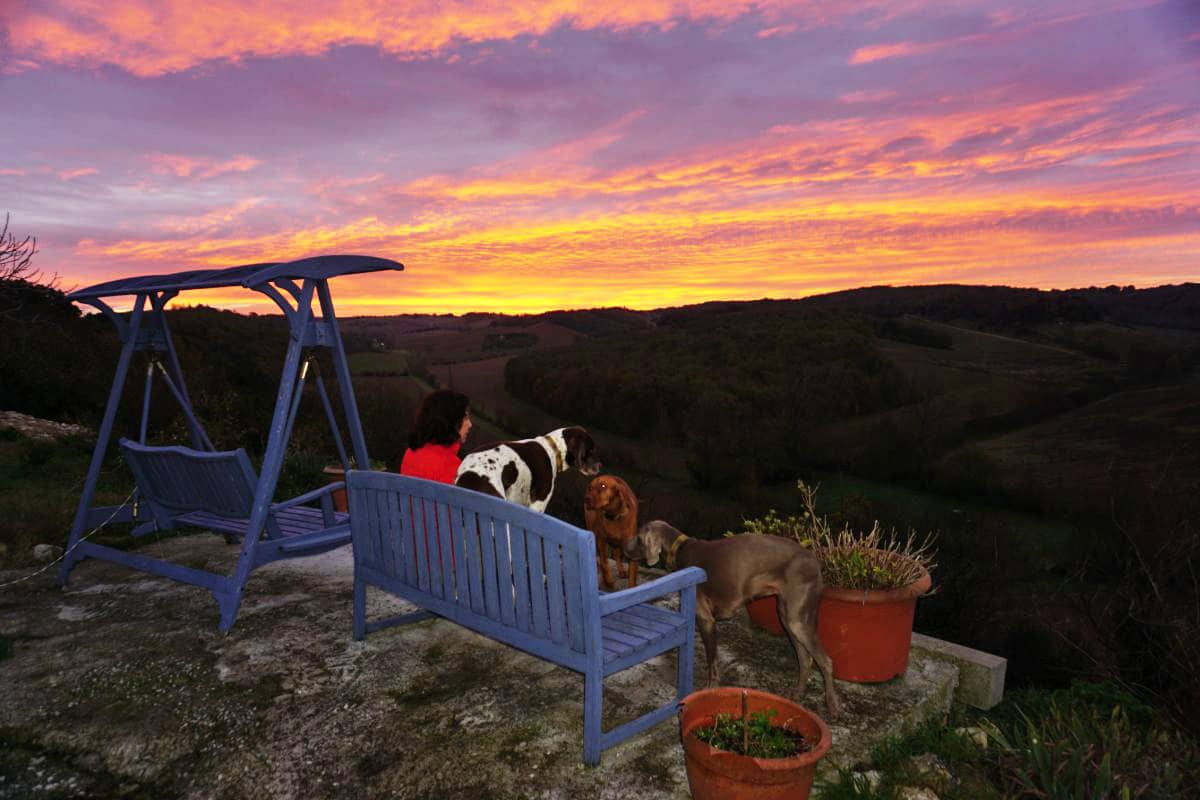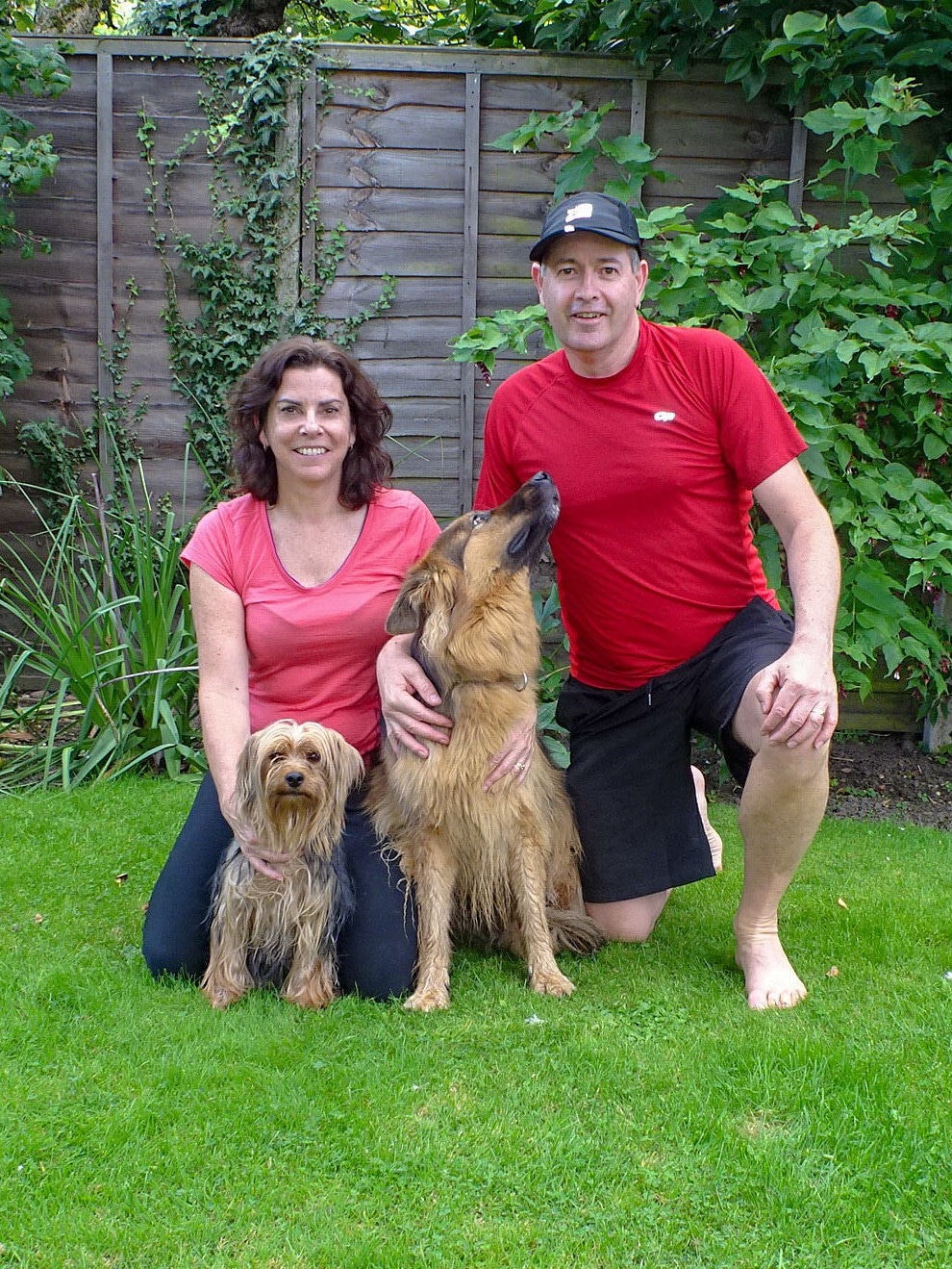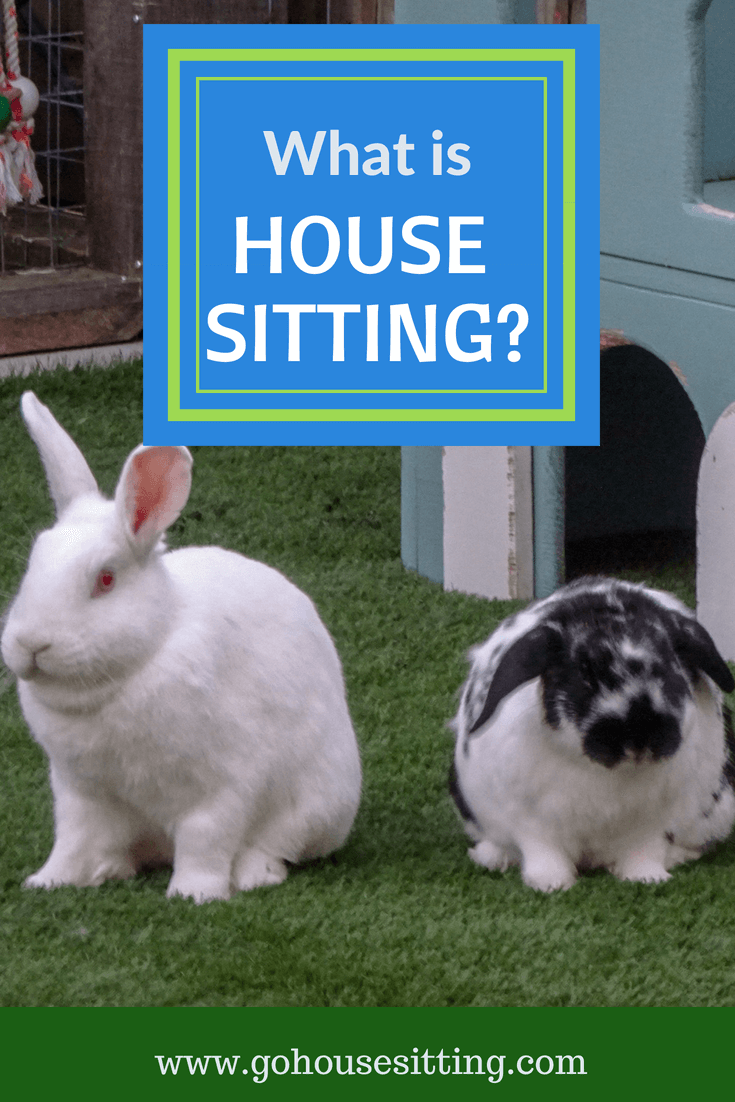If you have ever asked the question “What is House Sitting?” you are not alone.
Even Wikipedia has a section on “what is house sitting”.
You may be asking yourself:
- Is house sitting only looking after pets?
- Do you have to stay in the owner’s home while they are away?
- Does it entail going to the house daily to feed pets and clear mail?
- Will you have to check if the property is secure?
- Can you look after a home (without pets)?
- Is the service free or is it a paid assignment?
So, What is House Sitting?
House sitting is a mutual agreement between a homeowner leaving their home and pets for a period of time, with a house sitter who comes to live in their home while they are away.
The homeowner makes their home available for a house sitter to stay rent-free in exchange for care of the homeowners’ pets and property.
The house sitting arrangement (or assignment) can be formal (with an agreement) or informal. This depends on the combination of responsibilities between the homeowner and the house sitter.

Relaxing with Marcie in Cambridge, UK.
House Sitting – paid or unpaid?
There are two types of house sits – paid and unpaid.
For paid house sits, there is a formal agreement between the homeowner and house sitter. The agreement is often drafted by a third party organisation that bought the two parties together. In fact, there are two agreements:
- one between the company and the homeowner, and
- one between the company and the house sitter.
So, the house sitter is effectively employed by the company for these house sits.
In unpaid sits, the homeowner and house sitter reach an agreement between each other regarding expectations for the house sit. Generally, no money changes hands, although gratuities may be given.
What does a House Sitter do?
House sitters usually stay in a homeowner’s house while the owner is away. They are often nomadic lifestylers, travellers, semi-retired or retired who understand the responsibility of the role.
Depending on the agreement between the homeowner and the house sitter, the homeowner will specify the responsibilities of the assignment.
For pets: feeding times, number of walks, medication, grooming.
For property: garden maintenance, pool maintenance, cleaning, house rules.
If there are tasks that are more than light maintenance and cleaning, a fair hourly rate should be negotiated.

Walking two Schafpudels (German Sheep Dogs) in Adendorf, Germany.
Who can be a House Sitter?
Any adult can be a house sitter, but of course, it is entirely up to the discretion of the homeowner as to who they accept.
We have seen young couples, singles, retirees and everyone in between take up house sitting as an option. All that matters is that the homeowner is confident the house sitter is trustworthy and responsible. They will be entrusted with caring for the homeowner’s major asset, their home, property and pets.
We asked a number of Homeowners what they were looking for when they advertised for House Sitters.
Click the button to find out what they said.
What should I expect from a House Sitter?
The house sitter’s responsibilities include taking care of pets, the house and the property in the owner’s absence.
It can include collecting mail, mowing lawns, general weeding and pool maintenance. As well as keeping the house clean for the owner’s return.
House sitters supply their own food and toiletries, though many homeowners leave supplies of these for house sitters to use. It is not unusual to have several days of food supplied by the homeowner. However, homeowners should supply items for cleaning and maintenance.
What should I expect from a Homeowner?
The homeowner’s major responsibility is to provide communication with the house sitter to ensure expectations of the house sitting assignment are clear.
These can include:
- A tidy and clean house for the house sitter arrival
- Leaving a list of requirements for pet care (including medications), as well as vet contact details
- Providing a booklet on home appliances, rubbish collection
- Identifying food items available to the house sitter
- Return dates
- Emergency contacts
Clear communication between the homeowner and the house sitter ensures expectations are met, no one is disappointed and a great relationship is formed.
How House Sitting can be so much more …..
For both the homeowner and the house sitter, house sitting is a relationship of trust. If a good relationship is established, it makes the arrangement between the homeowner and the house sitter fulfilling.
Homeowners will find their pets content and happy on their return home, and the house should be in the same condition as when they left it. House sitters get to spend time in a new location, with fur babies as company, while keeping a property secure.
The building of the relationship starts right at the application and interview stage. Being open and honest before the house sitting assignment begins, allows for peace of mind and enjoyment.

Great friends we made in France through House Sitting.
What a House Sit is Not
House sitters are not expected to act as cleaners or gardeners to spring clean your house or tame a large garden. Or act as specialist pet carers for sick and infirm pets. Of course, this may be the case and needs to be clearly stated in the house sit advertisement.
Homeowners are not expecting a house sitter to treat their home as a free Airbnb, using the home as a base to spend hours each day away from the home sightseeing.
The House sitter’s primary purpose is to care for pets and ensure the property is kept safe and secure. Most homeowners expect the house sitter will spend a certain amount of time exploring nearby places, but a maximum time away from the pet should be stated.
Homeowners need to understand the house sitter is to care for their pets and keep their property safe and clean. They are not hired help expected to spend hours each day gardening, cleaning the property or other tasks, unless an hourly rate has been agreed.
Why go House Sitting?
House Sitting saves money – for both house sitters and the homeowner.
The main benefit of being house sitter is the accommodation savings that will allow your travel budget go further.
How would you like to:
- Stay on the south coast of England for two months?
- Spend 6-weeks exploring the white villages of Andalucía, Spain?
- Live like a local in a small village in Italy?
- Visit London for a month without blowing your budget.
As a house sitter, all these options can be a reality. In fact, we have enjoyed all these wonderful places and many more.
We have completed more than 60 House sits in France, Germany, Italy, Spain, Switzerland, the UK, Australia and New Zealand.
The main benefit for the homeowner is the money saved using a House Sitter instead of paying for kennels or catteries.
Instead:
- Your house is occupied keeping it safe and secure
- Your pets stay in their own home keeping to their routines
- You feel reassured with your arrangement with your chosen house sitter

Enjoying the sunset with dogs in rural south France.
But what is the true benefit of house sitting?
It has to be the relationship developed between the homeowner and the house sitter.
When you care for a homeowner’s fur babies safely in their own home, it is a stress free alternative for both the homeowner and their pet. Their appreciation of seeing their pets happy and safe is priceless.
And having a homeowner trust you to care for their property and pets, offers a house sitter an authentic travel experience. You get to live like a local.
House sitting enables you to travel the world while looking after pets in a comfortable home.
To pay or not to pay for house sitters
We often get asked by homeowners new to housesitting, is there a fee for the house sit?
While there is a fee for house sitters to join house sitting websites, the exchange of services between the homeowner and the house sitter is a free service. It’s why we use a 25% discount with Trusted HouseSitters.
You can get paid house sitting assignments, but they come with heavy restrictions.
We researched being paid house sitters but decided the small payment you received, did not compensate for the demands placed by the house sitting company. The majority of the money paid by the homeowner was not passed onto the house sitter.
The major differences are:
- the non-paid house sits the contract is with the homeowner directly
- the paid house sits the contract is with the house sitting company.
We prefer to deal directly with the homeowner.
As a result, we have made some great friends and have often stayed at home when we have been ‘passing by’.
And when homeowners appreciate the services of the house sitter, they may provide gratuities, gift baskets or dinner with the house sitter.
What does it Cost to be a House Sitter?
Membership of house sitting sites varies in cost.
The popular TrustedHouse sitters range from US$95-US$204 depending on the level of membership. Both the homeowner and the house sitter pay a fee to TrustedHouse sitters.
Other popular house sitting websites only charge the house sitter a fee.
Most house sits are free to the house sitter. But question the homeowner if they make requests for payment to cover utilities like power on long term house sits.
We have never paid for any utilities, and we do not feel we should as the savings for a homeowner are huge compared to the alternative e.g. pet boarding establishments.
If homeowners require specialist services, they may seek to hire a professional service, for example; window cleaners, spring cleaners or pet specialists, especially for sick pets.
Click here for a guide to some well known House Sitting websites.
Wrap Up of What is House Sitting
House sitting is a temporary arrangement between two parties – the homeowner and a house sitter. The arrangement is generally free for both parties.
Often, but not always, there are pets to look after. The house sitter, while caring for pets and the property, has rent-free accommodation. And often the opportunity to stay in a different location. Sometimes there are gardens to be tended, or pools to be maintained.
The homeowner benefits from having the security of their home occupied, with their pets receiving one-on-one care.
The arrangement is mutually beneficial where the owner entrusts their pets and property to the care of a house sitter for a period of time.
And open communication is the key to the relationship to enable the agreement of responsibilities.
House sitting is a rewarding role to care one on one for the owners’ pets allowing the homeowner to relax and enjoy their holiday. And the pets, they love staying home making their time with a house sitter stress-free.
It is a win/win situation.
Sign up here and we will send you a PDF about how to write a great profile that will secure your first house sit.







